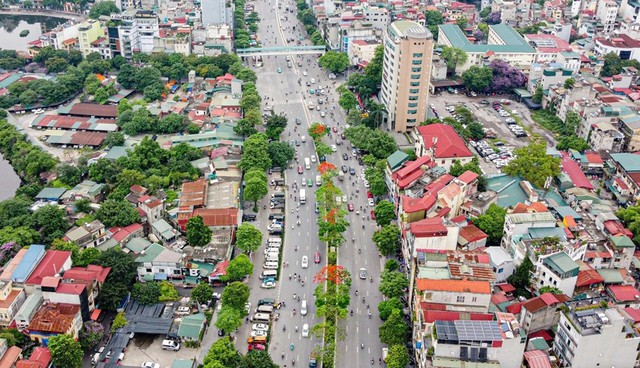Ha Noi reviews land plots for installing charging stations for clean energy vehicles
VGP – The Ha Noi Construction Department sent an official document to 126 communes and wards across the city, requesting their collaboration in reviewing, collecting data, and compiling a list of suitable land plots for installing charging stations for clean energy vehicles.

Illustration photo
The Department requested surveys, data collection, and information on cars and motorbikes using fossil fuels and electric energy currently in operation in each area, to serve the development of the vehicle transition plan.
Local authorities have also been asked to propose tasks and solutions for implementing Directive No. 20/CT-TTg of the Prime Minister on urgent and decisive measures to prevent and address environmental pollution. Communication campaigns will be strengthened to encourage public participation in the implementation of the Directive.
According to Deputy Director of the Ha Noi Construction Department, Dao Viet Long, the selection of sites for charging stations must follow three principles:
Prioritize public and vacant land – Use public lands, vacant lots, or sites with existing infrastructure such as public parking lots, government offices, cultural centers, People's Committee buildings at ward/commune level, stadiums, shopping centers, bus shelters, and parks. These areas already have access to electricity or can be easily supplied with stable premises and no land disputes.
Meet practical needs – Sites should be located near residential areas, apartment buildings, schools, markets, bus routes, or main roads where traffic flow of electric vehicles is high.
Ensure safety and accessibility – Locations must have safe entrances and exits, avoid obstructing traffic, and ideally allow integration with parking services or other public amenities.
Under Directive No. 20/CT-TTg, the Prime Minister requires Ha Noi to implement measures for organizations and individuals to switch vehicles and adjust travel routes.
By July 1, 2026, no motorcycles or motorbikes using fossil fuels (gasoline or diesel-powered) will be allowed to operate within Ring Road 1.
From January 1, 2028, fossil-fuel motorcycles and motorbikes will be completely banned, while the use of private fossil-fueled cars will be restricted within Ring Roads 1 and 2. From 2030 onwards, the policy will be expanded to Ring Road 3./.

